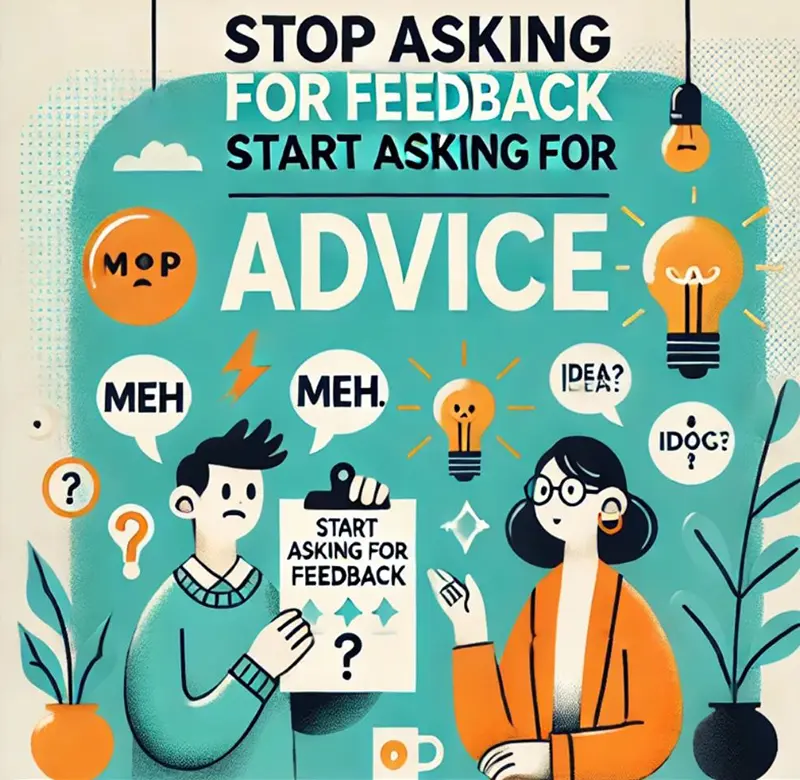We’ve all heard it: “Feedback is a gift.” But what if the gift we’re asking for isn’t the one we actually need?
In many professional settings, we’re trained to seek feedback to improve our work, our leadership, and our growth. But there’s growing evidence and real world wisdom that suggests asking for advice instead of feedback may be the more powerful, practical path.
Why Feedback Falls Short
Feedback often comes too late. It’s retrospective, focused on what you did rather than what you could do. And because it’s backward-looking, it’s easy for it to feel judgmental or vague:
• “It was good, but you could’ve been more engaging.”
• “You should have explained the strategy better.”
What are you supposed to do with that?
Even well-intentioned feedback can come across as a critique of your character or competence, especially if the relationship isn’t built on trust. And let’s be honest—“feedback culture” can sometimes become a way to check a box rather than meaningfully help someone grow.
The Power of Asking for Advice
When you ask for advice, you invite collaboration. You say, “Help me think through this,” not “Tell me what I did wrong.” Advice is inherently forward-looking, constructive, and empowering.
Compare:
• Feedback: “Your presentation lacked clarity.”
• Advice: “How would you suggest I make this clearer next time?”
The latter opens a door. It invites specifics, taps into the other person’s expertise, and creates a sense of partnership. People love giving advice—it affirms their knowledge and feels more personal and meaningful.
Advice Encourages Growth Mindset
When you ask for advice, you signal that you’re open to growth, not just critique. Research from Harvard Business School backs this up: people who ask for advice are perceived as more competent—not less—because they’re demonstrating self-awareness and a proactive mindset.
Advice encourages dialogue. Feedback often ends the conversation.
How to Make the Shift:
1. Reframe your requests. Instead of asking “Do you have feedback for me?” try “What’s one thing you’d do differently if you were in my shoes?”
2. Be specific. General questions lead to general answers. Ask targeted questions: “How would you approach handling a skeptical stakeholder in that meeting?”
3. Ask early. Seek advice before the moment passes—before the pitch, presentation, or project goes live. Advice is most useful when it can shape outcomes, not just review them.
4. Follow up. When someone gives you advice, circle back. Let them know what you tried and what you learned. This builds stronger professional relationships and accountability.
Final Thought
Feedback has its place—but if you’re looking to grow, learn, and truly improve, start by asking for advice. You might be surprised by how much more you receive when you ask for something different.


